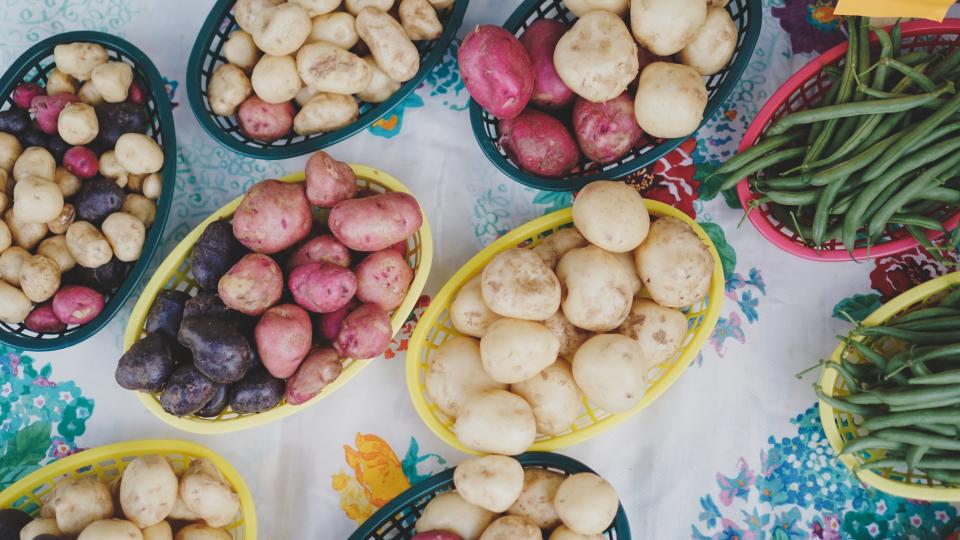What Does A Plant-Based Diet Mean?
A plant-based diet is associated with a lower risk of heart disease but what does it mean to eat plant-based? We break down the basics of what the term means and how it's different from being vegan or vegetarian.
Updated May 31 2019, 2:41 p.m. ET
-1533845023742-1533845026057.jpg?position=top)
Organic, non-GMO, local, plant-based. It seems every day there's new food and diet labels to learn if you want to understand where your food is coming from or how it impacts your health. Maybe you saw Forks Over Knives and want to try a similar whole foods based diet as the one discussed in the documentary or perhaps you've read about how research shows the best thing you can do for the planet is avoid meat and dairy.
Either way, a plant-based diet is not only great for your health, but great for the longevity of the planet. But unlike trendy diets that attempt to severely restrict what you eat or how much you eat, there's not really a clear definition of what necessarily constitutes a plant-based diet. That's because plant-based eating isn't just about what you put in your body, it's about your overall lifestyle.
Plant-based diets all depend on the extent to which a person includes animal products in their regular eating habits. Before you start throwing everything out of your refrigerator, let's break down the basics of what it means to eat a plant-based diet.
The essentials of a plant-based diet include:
Unlike vegan and vegetarian diets, a plant-based diet offers a little more flexibility. Though it's encouraged to limit the amount of animal-based products one consumes, it doesn't outright restrict them. So while some may remove dairy products from their diet completely, others may choose to still eat eggs at brunch or decide it doesn't bother them if their morning latte has whole milk.

"Eat food. Not too much. Mostly plants," is the famous credo by Michael Pollan, author of In Defense of Food and Omnivore’s Dilemma. In his writing he stresses the importance of understanding where your food comes from, opting for organic, locally sourced produce when you can, and avoiding chemicals you can't pronounce in ingredients lists.
Stock up on healthy low-cost staples. Cut back on your meat intake. Choose organic, free-range chicken, beef, and eggs when you decide to eat them. Know your labels, find out where your meat and produce is sourced from, and have fun experimenting with new recipes. These are all essential parts of eating a diet that emphases whole-food, plant-based meals.
Not everyone is ready to make the jump into plant-based eating right away and that's okay. Instead of immediately committing to a diet you aren't familiar with, try replacing one or two meals throughout the week with vegetarian options. Need a little help? Meatless Monday is a popular nationwide campaign that's great for recipes and meal ideas.